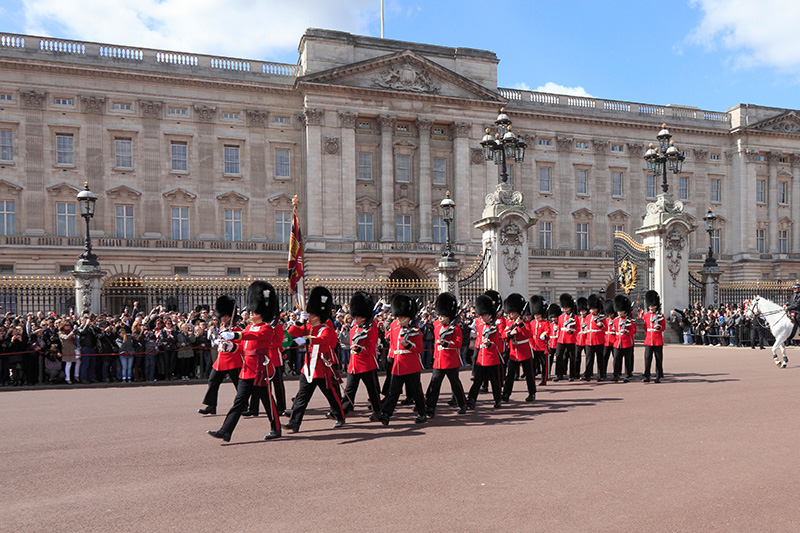Now Executive Director of the Ontic Center for Protective Intelligence, Fred Burton has previously served as a special agent and executive protection professional. Having planned several high security events during that time, he provides exclusive insight into how the security arrangements for the coronation of King Charles III, taking place on Saturday 6 May in London, may have been organised.

Fred Burton, Executive Director of the Ontic Center for Protective Intelligence
In doing so, he also reveals three key lessons that other security professionals should follow when planning operations for major events – even when they don’t have the resources of an entire government at their disposal.
When Queen Elizabeth was crowned in June 1953, the procession of dignitaries that followed numbered 16,000 people. It took the procession approximately 45 minutes to pass any one point along the route.
When she died nearly 70 years later, London’s Metropolitan Police Service said her funeral was the largest security event in its history.
The coronation of King Charles on 6 May 2023 promises to be a similarly high-profile and high-stakes event, despite Palace officials saying the procession will be “scaled back.” With heads of state from around the world expected to be in attendance, British authorities and their international partners will be working overtime to ensure the safety and security of all involved.
Like an iceberg, the security apparatus that will be visible on the streets – uniformed law enforcement officers, bomb squads, counter-snipers on rooftops, and protection officers – are only a fraction of the security measures that will actually be deployed.
What lies below the tip of the iceberg – the assessments and security measures taken in the days, months, and years prior to the event – is a critical foundation to ensuring the visible security measures will be sufficient to create the conditions needed for a safe and secure event.
In my time as a special agent and executive protection professional, I helped plan security operations for several major events and the high-profile protectees and executives who participated, including protective intelligence operations on HRH Prince Charles on many visits to the United States.
Here are a few lessons learned from major event planning that can help equip security and executive protection professionals to successfully plan and execute security operations for major events.
Lesson 1 – Start the planning process as early as possible
Plans for the aftermath of Queen Elizabeth’s death, known as Operation London Bridge, were first drawn up in the 1960s and updated three times annually. For an event like King Charles’ coronation, planning likely began years, possibly decades ago.
Major event security plans generally start with a risk assessment, pulling together potential scenarios that could threaten the safety of the event. Planners need to know what types of threats the coronation might bring, who the potential perpetrators may be, and what the effects of those threats would be.
They need to keep tabs on threats from a variety of vectors — cyber, physical, and cyber-physical – across the globe. The risks they face can be as mundane as the potential for bad weather, and as ephemeral as brand reputation issues or death threats on social media. Planners need to understand what resources they have available to them and how to arrange them most effectively against the potential threats they face.
In most cases, it’s helpful to bring a variety of professionals into the planning process early to better understand synergies and constraints.

Changing of the Guard at Buckingham Palace in London (Credit: Peter Phipp/AlamyStock)
For the coronation, security teams will likely establish a fusion centre to gather and analyse information as it becomes available in real-time – everything from maps to procession routes, background checks on participants and press, and ongoing monitoring of known fixated individuals, protestors, activists, and political extremists.
The intelligence services of the so-called ‘Five Eyes’ countries are also likely to be a force multiplier, enhancing intelligence collection where needed. Having a team working together early and often can help to avoid problems and mitigate risks as they arise.
For most events, it’s not necessary (or even possible) to begin planning several years in advance, but the earlier planning begins, the earlier everyone involved can understand the most likely problems in hopes of finding early ways to avoid them, ideally before plans are made that are difficult to adjust.
Lesson 2 – Create plans, but be ready to make adjustments
Even though many pieces of the event puzzle cannot be easily altered, it’s important for event planners to be ready to make adjustments to their plans and have a wide variety of contingency plans to counter possible crises and disruptions based on the risks identified in their initial threat assessments, coupled with logistical and operational concerns.
As the coronation draws near, security teams will be working in finer and finer detail – with hotels that dignitaries will stay in, developing plans to rotate security teams throughout the day, and developing ingress and egress plans for dignitaries.
What happens, for example, if a major world leader arrives late to the event? Are there adequate plans to ensure that they can pass through a security cordon?
Looking at the bigger picture, there are also security risks that event planners could not have envisioned in 1953, or perhaps even in 2003: how to counter drones, how to manage cyber threats, and defend the vast digital apparatus spanning the coronation. Major event planners cannot be afraid to re-examine the original threat assessment to ensure known threats haven’t substantially changed and new threats haven’t emerged.
Even with the best-laid plans, organisers will need contingency plans to address the unexpected. For the coronation, they will plan how to communicate with the public in the event of an emergency, and how to fight the rapid spread of disinformation that may emerge in the days and hours leading up to and following the event.
Lesson 3 – Augment your plans with technology solutions
For any major event, the threat landscape is dynamic and diverse, with new information emerging constantly. Modern security platforms can help event organisers maintain an always-on approach, minimising risks and mitigating threats to people, brand reputation, and assets.
For the coronation, all of the technical tools of the British government will be at the disposal of the security planners and organisers.
While security teams may not have the same resources while planning for large sporting competitions and corporate events, technology software and solutions can help major event teams understand and monitor the full scope and scale of threats they face, allowing them to adjust their plans to avoid and mitigate risks where possible.
Going back to our iceberg analogy, numerous security measures will be present and highly visible at the coronation ceremony, but the visible pieces are the result of months and years of more substantial preparations.
That work laid a larger foundation for everything happening behind the scenes, efforts that will never be fully recognised in public. Even if corporate security professionals don’t have decades to plan for major events, following the same principles can help organisers ensure a safe and successful event.
About the author
Fred Burton is an expert on security and counterterrorism, having served on the front lines of high-profile investigations such as the hunt for and arrest of Ramzi Yousef, the mastermind behind the first World Trade Center bombing and the search for Americans kidnapped by Hezbollah in Beirut, Lebanon. A former police officer and New York Times best-selling author, he is Executive Director of the Ontic Center for Protective Intelligence.
Hear more from Ontic in our podcast episode with Dr Marisa Randazzo below, where we discussed the issue of school shootings in the United States, and Marisa’s experience in behavioural psychology and violence prevention…

